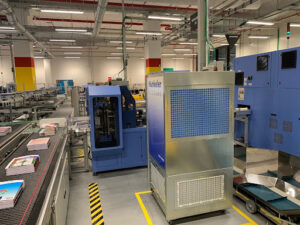

How does air cleaning work, and what benefits does it bring?
Dust, pollen, viruses and bacteria – the air quality in indoor areas is endangered by many influences. To comply with occupational health and safety regulations and to ensure the health of their employees, companies have long been using air purifiers for commercial applications. With the onset of the Corona pandemic, these devices have become even more important. They represent an important bastion against the spread of the virus. We’ll tell you how air purifiers filter pollutants, what benefits they offer, and what you should consider when choosing one.
How does the air cleaning work?
From the outside, air cleaners usually look simple and inconspicuous. Inside, however, there is a sophisticated technology consisting of filter systems connected in series. Cleaning takes place in the following steps.
1. suction of the air
In order for pollutants to be removed, the air must first be drawn in. This is done by a fan inside the unit. The air is then passed through several filters.
2. Pre-filtering
The pre-filter visually resembles a sieve, usually consists of a mesh or grating and traps larger pollutants. These include dust and lint, for example, but also hair and insects. A good pre-filter increases the service life of the main filter and prevents it from being damaged by larger pollutants.
3. Main filtration
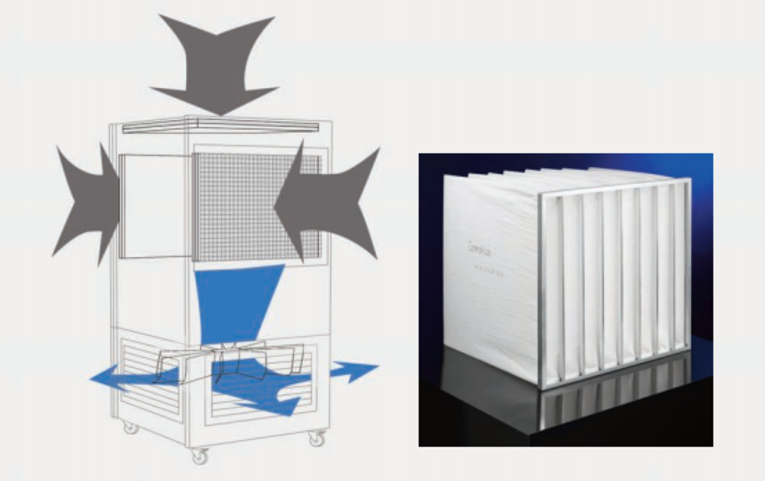
Modern air cleaners use various technologies in the main filtration. One of the most important is the HEPA filter. HEPA stands for “High Efficiency Particulate Air” and is considered the current ultimate in the filtration of minute particles. To capture even viruses and bacteria with a size of 0.1 to 0.3 µm, HEPA filters have interwoven fibers. These are arranged in several layers.
Information on the effectiveness of HEPA filters is provided by the European standard EN 1822-1. The decisive factor here is the so-called separation efficiency, which indicates the number of pollutants removed.
- HEPA filters of class H13, for example, clean 99.95% of the room air from bacteria and viruses.
- The figure for class H14 filters is as high as 99.995%.
- There is also the US HEPA standard. With a filtration efficiency of 99.97%, this lies between the two European standard classes H13 and H14.
Among the HEPA filters rank the EPA filters of classes E10 to E12. The maximum filtration efficiency of these models is 99.5%. Activated carbon filters are similar in structure to a sponge with pores of different sizes. These are interconnected and create a large surface area that retains a wide variety of pollutants. Activated carbon filters can remove dust and pollen from indoor air. They are also suitable for filtering chemicals, provided that filter class F7 is used. Since activated carbon filters bind odors, they also serve to improve the indoor climate. However, activated carbon filters are not fine enough to safely retain bacteria and viruses.
4. Delivery of clean air
After filtration, the purified air is released into the room through openings.
WWhich areas benefit from an air cleaning system?
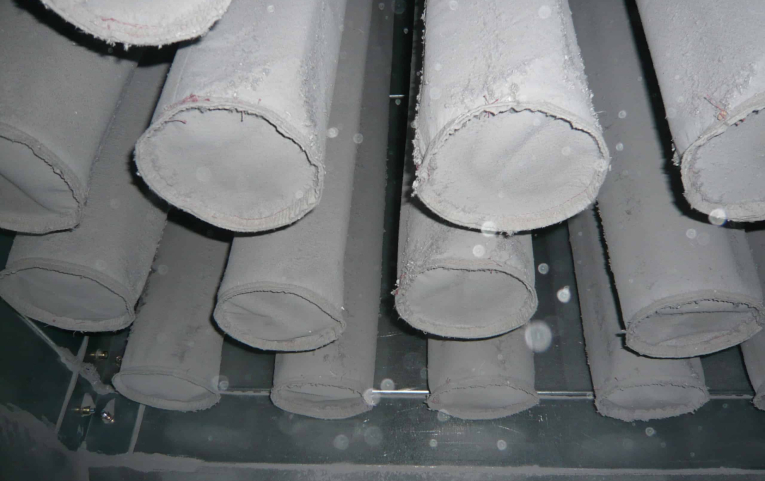
One of the strengths of room air cleaners from Hunkeler Systeme is their versatility. There is a range of solutions suitable for use in different locations. This ranges from offices to production halls. The technology from Hunkeler Systeme offers you the right solution for every location.
Depending on the application, there are various solutions for dust removal from Hunkeler Systeme. Room air cleaners from Hunkeler Systeme are used in these areas:
- Industry
- Production
- Warehouses
- Packaging areas
- Offices
- Commercial
Accordingly, the air cleaners offer different properties. For example, they are designed to filter coarser dust and pollen. Alternatively, there are solutions that specifically filter air pollution from production. In industrial areas, for example, the main focus is on filtering fine dust.
What sizes of rooms can be filtered with systems for air cleaning?
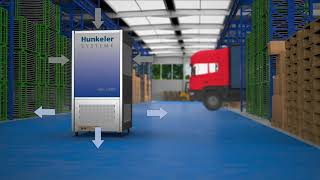
Hunkeler Systeme offers you solutions for a wide range of room sizes. The HKA series is therefore available in several variants. These differ in the performance as well as the filters that are available.
The HKA Office system is a compact system intended for room sizes up to 190 cubic meters in volume. Typical areas of application are therefore offices and similar areas. For this reason, HKA Office also operates particularly quietly with a sound pressure level of 48 dB(A). With the HKA 1000 and 3000, there are air cleaners for rooms with volumes of 3,000 and 10,000 cubic meters, respectively.
The HKA Aircleaner 10000 is designed for large halls and similar areas. It has a filter capacity of up to 10,000 cubic meters per hour. Relevant places of use here are production halls and warehouses.
Mineralquellen Adelboden AG, for example, also uses such a system for air filtration in the storage area. This has significantly improved the air quality in the warehouses of Mineralquellen Adelboden AG. The dust content has dropped by a factor of five thanks to the HKA Aircleaner from Hunkeler Systeme. As a result, the air in the warehouses now meets the strict requirements of ISO 16890.
What are the advantages of air cleaning?
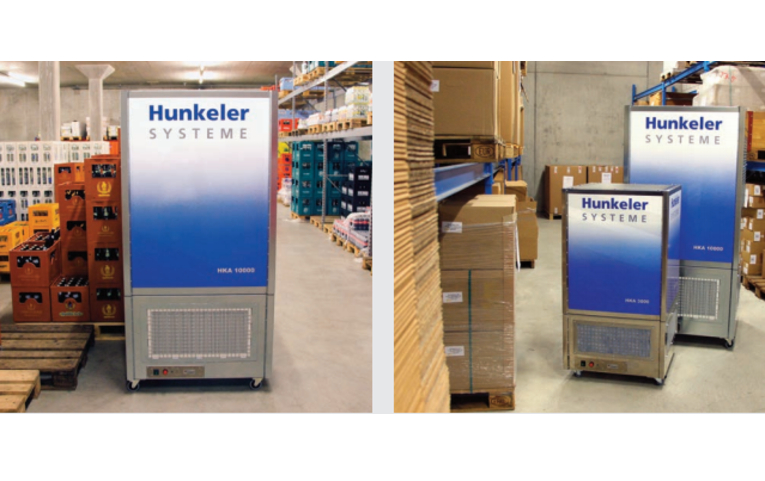
If you decide to have air cleaning in your company, you will benefit from several advantages at once, such as the following.
Effective air dust removal
Dust is not only a problem in the household, but also in the commercial sector. Industries that process wood, metal, plastic or paper are particularly affected. The particles settle on surfaces, get into the inner workings of machines and can disrupt the function of sensors. Experience shows that cleaning work can be reduced by up to 60 percent through room air dedusting.
In addition, appropriate dust collectors ensure that air-conditioning filters are less likely to become clogged with dust particles. In addition to visible coarse dust, there is also fine dust that is invisible to the human eye. These particles penetrate unhindered into the respiratory tract, where they can trigger serious diseases such as asthma, high blood pressure and lung cancer. Powerful building air cleaners neutralize this danger by binding even the smallest dust particles.
Protection for allergy sufferers
Mite droppings, animal dander, pollen – many substances in the air give people with allergies a hard time. Working indoors does not always bring relief, because some allergens penetrate even through the smallest cracks and crevices. Air purifiers effectively remove these particles from the air. The result: less downtime due to respiratory illnesses and a safer environment for allergy sufferers. But room air purifiers don’t just help against classic allergens. They also bind chemical residues that cause discomfort in sensitive people with MCS – such as solvents and fragrances. Activated carbon filters are particularly well suited for this purpose.
Elimination of mold spores
Mold infestation is a problem especially in old buildings. The fungi not only look unsightly. They also release tiny spores into the air, which people breathe in. In many cases, mold is not even noticed because it grows in hard-to-reach places. Instead, the mold problem manifests itself in respiratory illnesses, skin irritations, headaches and other ailments. In the fight against mold, air purifiers are a suitable means – provided they have a sufficiently fine HEPA filter of class H13 or EPA E10 to E12 filter. The latter binds the microscopic spores, while an activated carbon filter counteracts the musty smell of mold.
Air disinfection to protect against viruses and bacteria
Air purifiers rid the air of viruses and bacteria. They have long been standard in doctors’ offices and hospitals. Currently, they are also used in companies to protect employees from the Corona virus.
How do air cleaners protect against Covid-19?
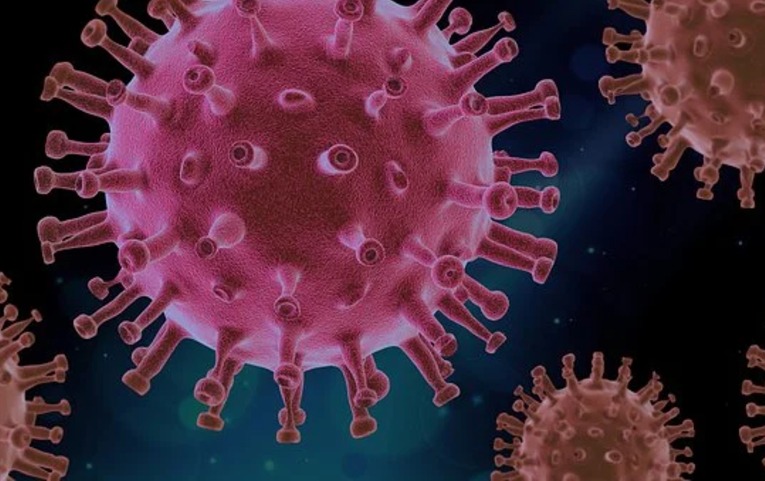
Before answering this question, we must bear in mind how the novel corona virus is transmitted. On the one hand, infection occurs via emitted droplets, for example when patients sneeze or cough. But even more dangerous are the so-called aerosol particles. Unlike larger droplets, these do not fall to the ground but float in the air.
They are produced primarily during speech and can be spread over large distances by air turbulence, but also by fans and air conditioning systems. Aerosols are only a few millionths of a millimeter in size. That’s why special filters are needed to remove them from indoor air. EPA filters of class E10 to E12 already perform well. H13 and H14 filters are even more effective. Together with a well thought-out hygiene concept, distance rules and the wearing of masks, they form an important component in protection against corona.
Frequently asked questions about room air cleaning
Industrially used air purifiers should be tailored to the exact needs of your operation. That is why the following questions are important:
Where should I position the air cleaner?
For the air cleaner to work effectively, it must draw in air from all sides. Therefore, it is not recommended to place it in a corner, against a wall or between machines. In this case, the device would not be able to clean all the air in the room. Instead, there should be at least 30 centimeters of space around the air purifier. A location near the largest source of dust generation, is considered ideal.
How fast do air cleaners work?
How many cubic meters of air the device can clean in one minute depends on several factors. These include the size of the fan and the air inlets, as well as the filters used. When making a comparison, you should pay attention to the so-called CADR (Clean Air Delivery Rate). This indicates how many fine dust particles are filtered out of the room air per minute. The higher this value, the more effectively the air purifier works.
How do I check if the filter still has full cleaning power?
Modern air cleaners, such as the HKA series from Hunkeler Systeme, work with an active filter monitoring system. The pressure before and after the filter is measured and compared around the clock. If the measured value exceeds the defined safety limit, the system automatically alerts the user by means of a warning lamp. Through this active monitoring system, the filter performance is proactively monitored throughout the life of the unit.
Are air cleaners energy wasters?
The latest generation of air purifiers operates on 230V and consumes exterm little power. In addition, the devices can be put into standby mode overnight, if the operation allows it, with a timer.
How loud are air cleaners?
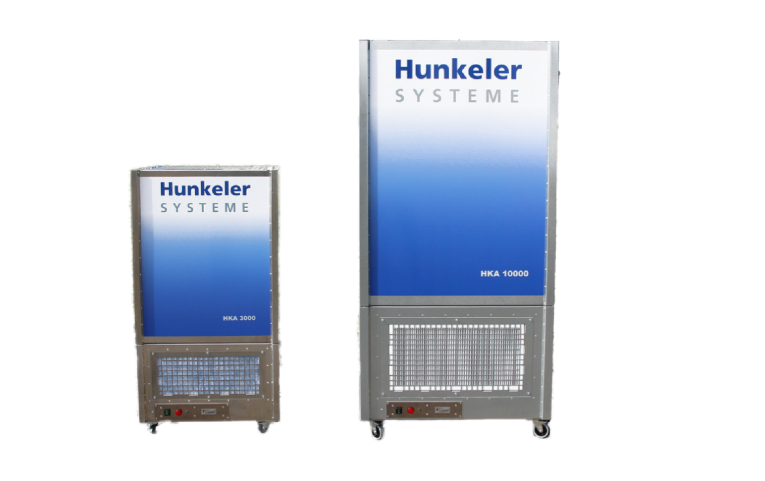
The volume of air cleaners depends primarily on the power, size and rotational speed of the fan. The decisive factor here is the so-called sound pressure level, which is specified in decibels. Air purifiers from Hunkeler Systeme have a sound pressure level of 48 dB in the smallest version. This is comparable to a normal conversation. Of course, our larger devices are somewhat louder. The HKA 10000, for example, produces 64 dB, which is roughly equivalent to a sewing machine. Please note: These values were measured from a distance of two meters. If you stand further away, the volume will drop accordingly.
How often do air cleaning systems require maintenance?
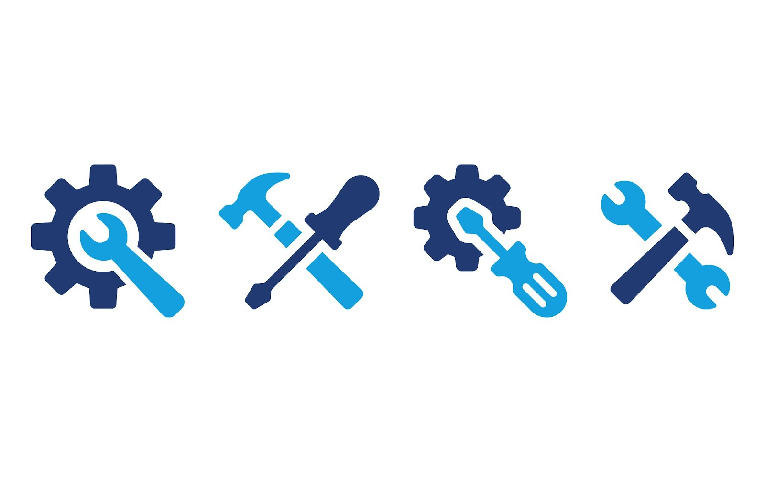
In the case of room air cleaning systems, it is primarily the air filters that require regular maintenance. The HKA Aircleaner series stands out here due to its low maintenance requirements.
There are two filter components in the Hunkeler Compact Aircleaners. The first is the pre-filter. This must be replaced at intervals of about six months. The main filter in these systems, on the other hand, only needs to be replaced once a year.
Other types of air cleaning
In addition to the air cleaners already presented, the following technologies are also used in commercial enterprises.
Air washer
Air scrubbers draw in the room air and direct it to a roller that rests in a water bath. When this roller rotates, the pollutants enter the water, where they are washed out. The purified air has an increased humidity. This creates a climate that favors building dust removal and makes it more difficult for pathogens to multiply. Allergy sufferers and people with respiratory problems also benefit from this change in indoor climate. However, air scrubbers have one major disadvantage. They do not work as finely as air purifiers when it comes to filtering out minute particles. They are therefore not suitable for use as a sterilizer against viruses. Another shortcoming is that the water must be changed regularly for hygienic reasons.
Ionizers
To improve air quality, so-called ionizers are also used in the commercial sector. They work with static electricity, which causes particles to clump together and bind to the ion bars inside the device. Ionizers show a reliable effect on dust particles, smoke, pollen, viruses and bacteria. At the same time, they neutralize bad odors by producing ozone, which is especially interesting in the restaurant industry. However, health concerns remain. It is true that modern ionizers emit ozone only in small quantities. Nevertheless, there is a risk of respiratory irritation from the gas. For allergy sufferers and asthmatics, ionizers are therefore only suitable to a limited extent. And they should also not be used with cigarette smoke due to harmful by-products.
IIndustrial production dedusting with high-performance filters
Active dedusting of the production machines allows dust-free processing and increases the quality of the end products. Increasing demands on product quality require efficient dust collection and extraction systems. Our dedusting solutions offer them high product quality, less waste, lower cleaning and maintenance requirements as well as higher machine availability and lower wear. Our dust collection and extraction systems are designed to customer specifications and adapted to local conditions. The installation of the system is possible both in production and outdoors.
Air cleaning by Hunkeler Systeme: Our advantages
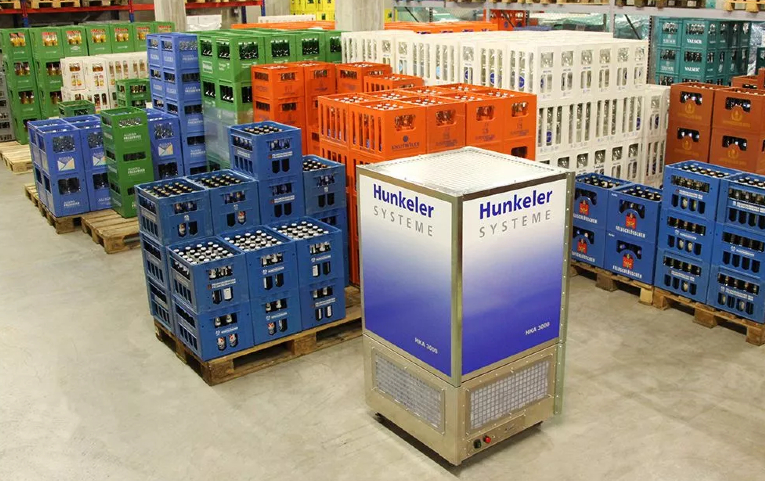
When it comes to air technology in industrial plants, we offer comprehensive and reliable solutions:
- Our powerful air cleaners are available in four different sizes. This makes them just as suitable for small office buildings as for large-scale warehouses.
- Thanks to state-of-the-art EC technology, our units have an efficiency of almost 90 %. This makes us a pioneer in energy-efficient air filtration.
- Our air cleaners are particularly user-friendly. For example, a warning lamp tells you when it is time to change the filter. The units themselves are absolutely maintenance-free.
- For building air cleaning, we use EPA and HEPA filters of class E11 and H13, which retain even the smallest particles. Thus, our air purifiers provide effective protection against corona viruses.
- For particularly effective removal of odors, we offer fine-pored activated carbon filters of class F7.
You can find more information about our air cleaners on our homepage and on other pages about room air cleaning.
Hunkeler Systeme: Air cleaning from the traditional company
When you choose air cleaners from Hunkeler Systeme, you benefit from a whole 80 years of experience and know-how. We have been active in waste disposal technology since 1940 – first as a department of Hunkeler AG, and since 1990 as our own company. 80 employees produce state-of-the-art machines in our 3000 square meter production hall. Thus, we address medium-sized companies as well as large corporations. Our customized solutions are used all over the world. At Hunkeler Systeme you receive all services from one source – from consulting to commissioning. Of course, we will also be at your side afterwards with our comprehensive range of services. Find the perfect solution for your room air filtration and contact us.
